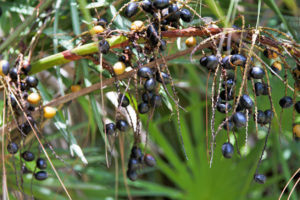Overactive bladder, also called OAB causes frequent and sudden desire to urinate and can be difficult to control, leading to urinary leakage, a.k.a. urge incontinence (UI), and nocturia (waking up more than two times in the night to urinate). It also is associated with frequency of urination day and night. Frequent urination is usually eight or more times in 24 hours.
Symptoms of OAB women can be improved with timed voiding and bladder-holding techniques, reduction of bladder irritants such as caffeine and alcohol, pelvic floor muscle training/exercises, and even low dose vaginal estrogen especially in menopausal women.
Overactive bladder happens when the muscles of the bladder start to contract on their own even when there is a low volume of urine in the bladder. This involuntary contraction creates the urgent need to urinate.
There are some medical conditions that contribute to signs and symptoms of OAB including:
- Neurological disorders such as stroke or multiple sclerosis
- Diabetes
- Urinary tract infections
- Menopausal hormonal changes leading to genito-urinary syndrome of menopause (GSM)
- Bladder tumors or stones
- Previous pelvic surgery
- Uterine fibroids causing a large uterus putting pressure on the bladder and interferes with proper bladder emptying
- Medications that cause the body to make a lot of urine or require they be taken with fluids
- Incomplete bladder emptying
Several conventional treatments are used to treat OAB but they can cause dry mouth, dry eyes and even cognitive dysfunction. Pelvic floor therapy from a trained women’s health physical therapist is an essential piece of standard of care in my opinion. Low dose vaginal estrogen can be a miracle medicine for some – used as an intravaginal suppository or cream usually twice weekly.
 Herbal medicine may offer some options as well. Saw palmetto (Serenoa repens, Arecaceae) berry extract (SPE) has been used to treat benign prostatic hypertrophy and reduce symptoms of frequent urination in men.
Herbal medicine may offer some options as well. Saw palmetto (Serenoa repens, Arecaceae) berry extract (SPE) has been used to treat benign prostatic hypertrophy and reduce symptoms of frequent urination in men.
The current multicenter, randomized, double-blind, placebo-controlled, parallel-group study evaluated the efficacy and safety of consumption of SPE in adult women with lower urinary tract symptoms.
Participants were recruited from 3 clinics in Japan. Women participants over the age of 50 years were included who had symptoms of frequent urination, nocturia, and/or urgency for a least two months preceding the trial, and had urinary symptoms that did not require medical treatment.
Seventy-six elderly women were enrolled and randomly assigned to the treatment group (SPE; n = 38) and placebo group (n = 38). The SPE group received 320 mg in gelatin capsules. The placebo group received 320 mg of a glycerin fatty acid ester in gelatin capsules. Participants in both groups took one capsule daily for 12 weeks.
Primary outcomes were measured at baseline, 4, 8, and 12 weeks and included the core lower urinary symptom score (CLSS) questionnaire: daytime frequency, nocturia, urgency, urgency incontinence, stress incontinence, slow stream, straining, incomplete emptying, bladder pain, urethral pain, and total score. Secondary outcomes were evaluated at baseline and 12 weeks using the overactive bladder symptom score (OABSS), patient global impression (PGI) attenuation of symptoms score, and a health-related quality of life (QOL) questionnaire.
The mean age for the SPE and placebo groups was 69 years old. Following 12 weeks, daytime frequency was significantly smaller in the active group compared to the placebo group.
Secondary outcomes were similar to primary outcomes. Results of the OABSS showed a significantly smaller daytime frequency following treatment.
The researchers concluded that SPE may improve the symptoms of daytime frequency and nocturia in elderly women and may improve lower urinary tract symptoms.
Commentary: It doesn’t really get any simpler than this…320 mg/day of an extract of a plant – in this case, saw palmetto extract. I see no reason why not give this a try for 12 weeks and see if it improves symptoms of overactive bladder.
Reference: Yamada S, Shirai M, Ono K, and Kageyama S. Beneficial effects of saw palmetto fruit extract on urinary symptoms in Japanese female subjects by a multicenter, randomized, double-blind, placebo-controlled study. Nutrients. March 2022;14(6):1190..

